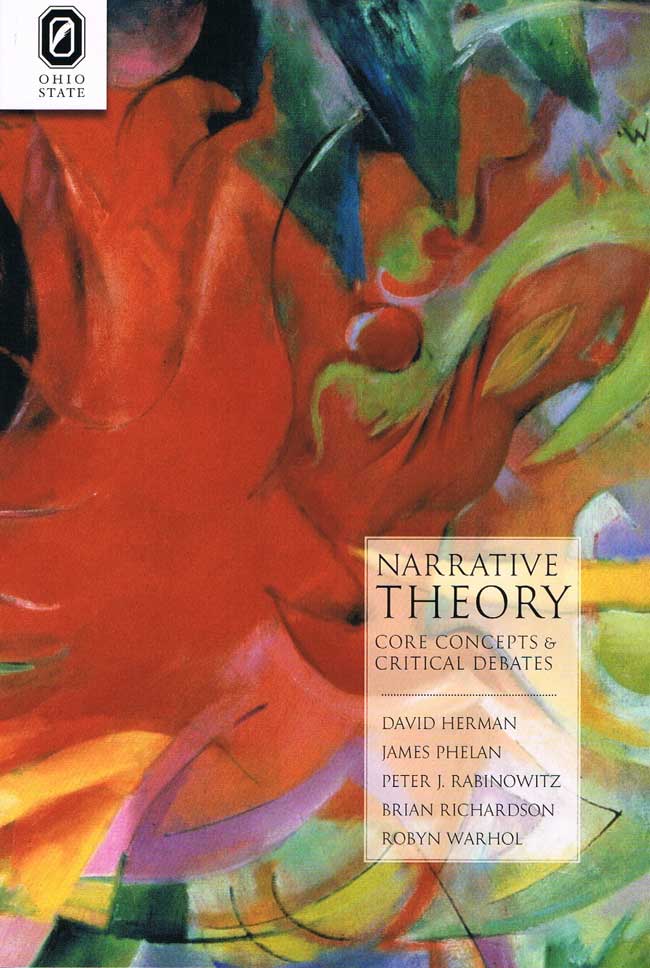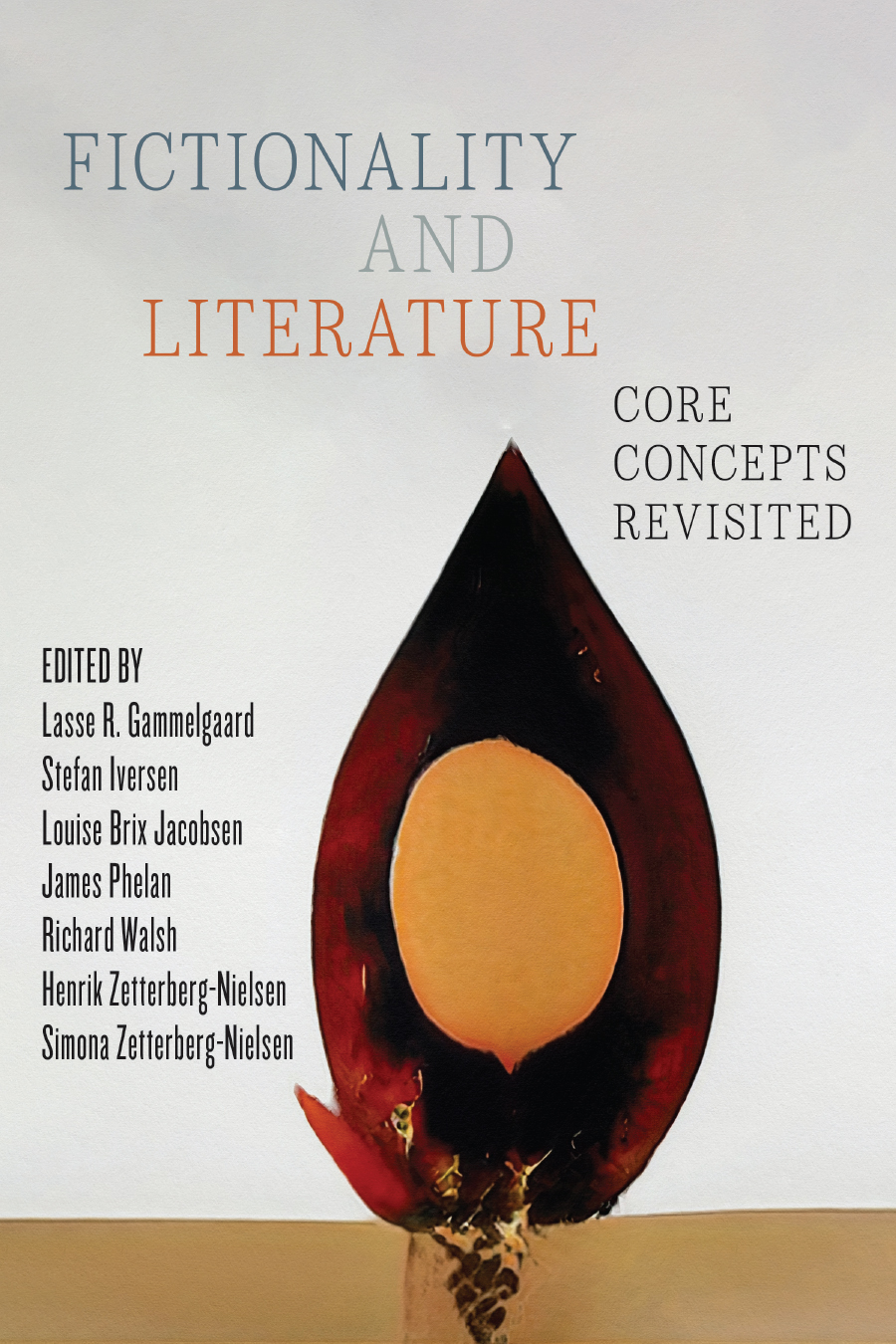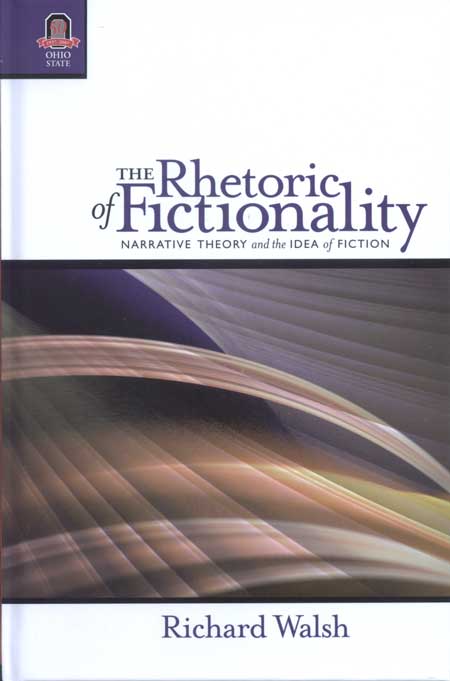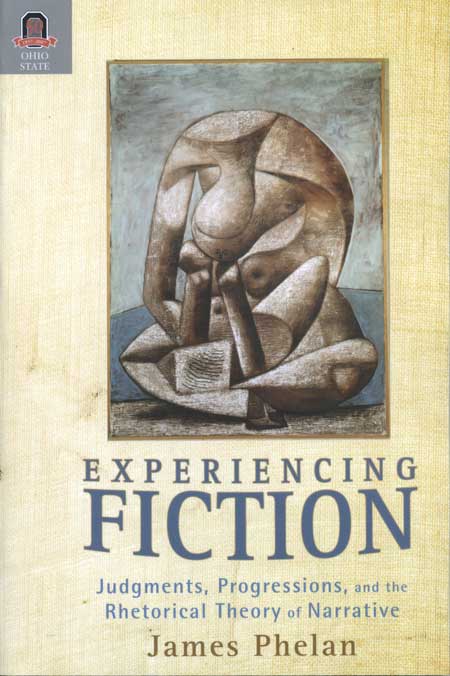Chapter 6 of Fictionality and Literature is freely available in the OSU Libraries’ Institutional repository, Knowledge Bank
“Fictionality and Literature offers a thought-provoking and timely revisiting of literary concepts and perspectives. The collection provides a substantial overview of the family of rhetorical fictionality theories but beyond that, it revisits reasons for why we are interested in studying fiction and literature in the first place.” —Elin Ivansson, Anglia
“Helpful and informative for readers, writers, and critics … Fictionality and Literature is a complete compendium of knowledge, a collection of essays that only propels rhetorical fictionality theory into the future of both analytical and creative composition. The next time I sit down to write fiction, I’ll keep this volume in mind—I won’t be able to help it.” —Alex Crayon, Journal of the Midwest Modern Language Association
“Fictionality and Literature provides a clear window into one of the most interesting and provocative new approaches to narrative––the rhetoric of fictionality. Enhanced by a diversity of theoretical approaches, this collection will have a broad and profound impact on narrative research.” —Brian McHale, author of The Obligation toward the Difficult Whole: Postmodernist Long Poems
Taking its cues from Richard Walsh’s influential 2007 book, The Rhetoric of Fictionality, Fictionality and Literature sets out to examine the implications of a rhetorical understanding of fictionality. A rhetorical approach understands fictionality and nonfictionality not as binary opposites but as different means to the same end: influencing an audience’s understanding of the world. Arguing that fiction is not just a feature of particular works, such as novels, but an adaptable instrument used to achieve an author’s specific rhetorical goals, the contributors theorize how to reconceive of core literary concepts and influences such as author, narrator, plot, character, consciousness, metaphor, metafiction/metalepsis, intertextuality, paratext, ethics, and social justice. Combining analyses of a wide range of texts by Colson Whitehead, Charles Dickens, Kazuo Ishiguro, Toni Morrison, Geoffrey Chaucer, and others with historical events such as the Nat Tate biography hoax and the Anders Breivik murders, contributors discuss not only a rhetorical definition of fictionality but also the wider consequences of such a conception. In addition, some chapters within Fictionality and Literature offer alternatives to a rhetorical paradigm, thus expanding the volume’s representation of the current state of the conversation about fictionality in literature.
Contributors:
H. Porter Abbott, Catherine Gallagher, Lasse R. Gammelgaard, Stefan Iversen, Louise Brix Jacobsen, Rikke Andersen Kraglund, Susan S. Lanser, Jakob Lothe, Maria Mäkelä, Greta Olson, Sylvie Patron, James Phelan, Richard Walsh, Wendy Veronica Xin, Henrik Zetterberg-Nielsen, Simona Zetterberg-Nielsen
Lasse R. Gammelgaard is Associate Professor in the School of Communication and Culture at Aarhus University.
Stefan Iversen is Associate Professor in the School of Communication and Culture at Aarhus University.
Louise Brix Jacobsen is Associate Professor in Danish Media Studies at Aalborg University.
James Phelan is Distinguished University Professor of English at The Ohio State University and author of numerous books, including (with Matthew Clark) Debating Rhetorical Narratology: On the Synthetic, Mimetic, and Thematic Aspects of Narrative and Narrative Medicine: A Rhetorical Rx.
Richard Walsh is Professor in the Department of English and Related Literature, University of York, and author of The Rhetoric of Fictionality: Narrative Theory and the Idea of Fiction.
Henrik Zetterberg-Nielsen is Professor in the School of Communication and Culture at Aarhus University.
Simona Zetterberg-Nielsen is Associate Professor in the School of Communication and Culture at Aarhus University.
Contents
List of Illustrations
Introduction by the editors
Chapter 1 Author
Henrik Zetterberg-Nielsen
Chapter 2 Narrator
Sylvie Patron
Chapter 3 Plot
Wendy Veronica Xin
Chapter 4 Character
H. Porter Abbott
Chapter 5 Consciousness
Maria Mäkelä
Chapter 6 Metaphor (freely available)
Greta Olson
Chapter 7 Paratext
Louise Brix Jacobsen
Chapter 8 Intertextuality
Rikke Andersen Kraglund
Chapter 9 Metafiction and Metalepsis
Richard Walsh
Chapter 10 The Novel
Catherine Gallagher and Simona Zetterberg-Nielsen
Chapter 11 Poetry
Lasse R. Gammelgaard
Chapter 12 Literary Nonfiction
James Phelan
Chapter 13 Ethics
Jakob Lothe
Chapter 14 Social Justice
Susan S. Lanser
List of Contributors
Index
Related Titles:

Narrative Theory
Core Concepts and Critical Debates
David Herman, James Phelan and Peter J. Rabinowitz, Brian Richardson, and Robyn Warhol




